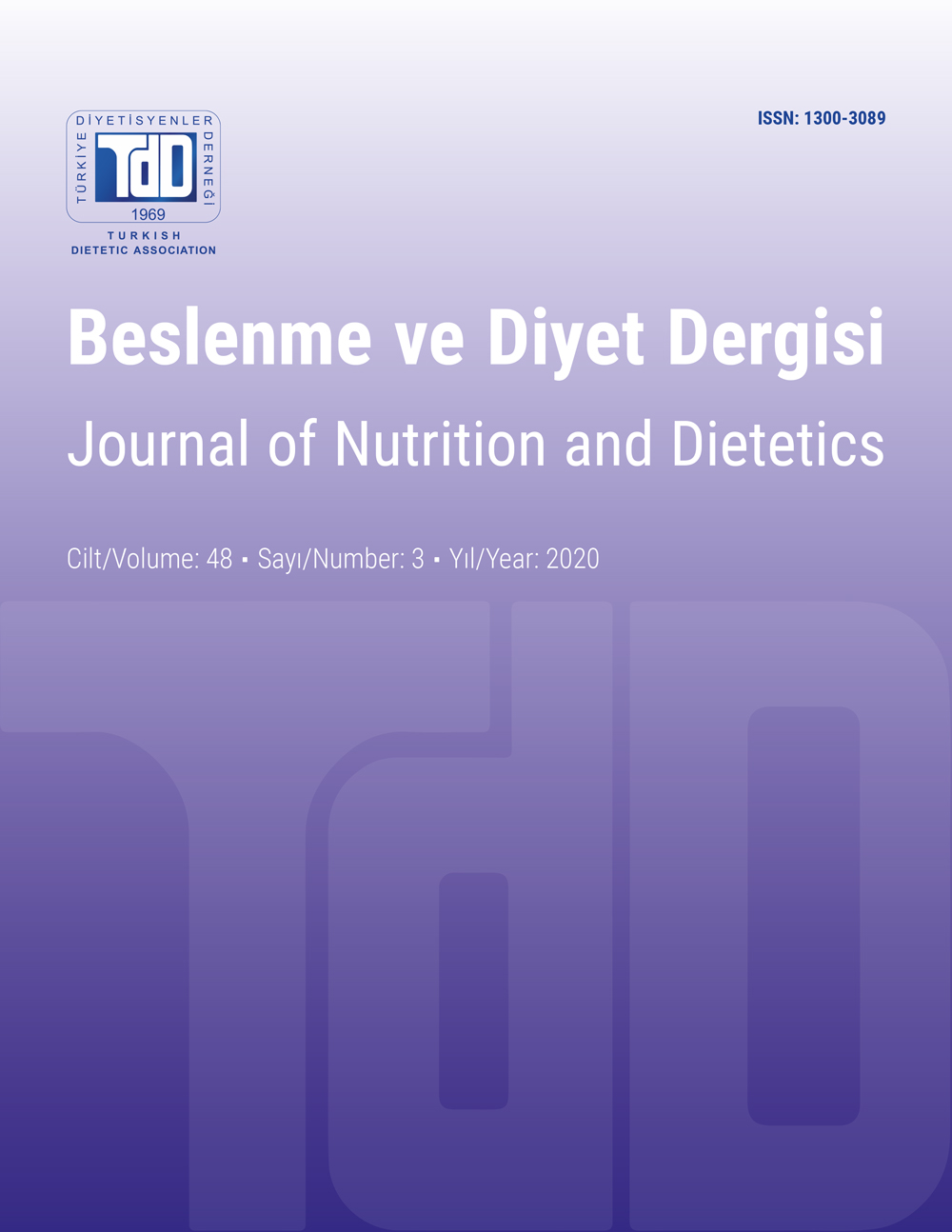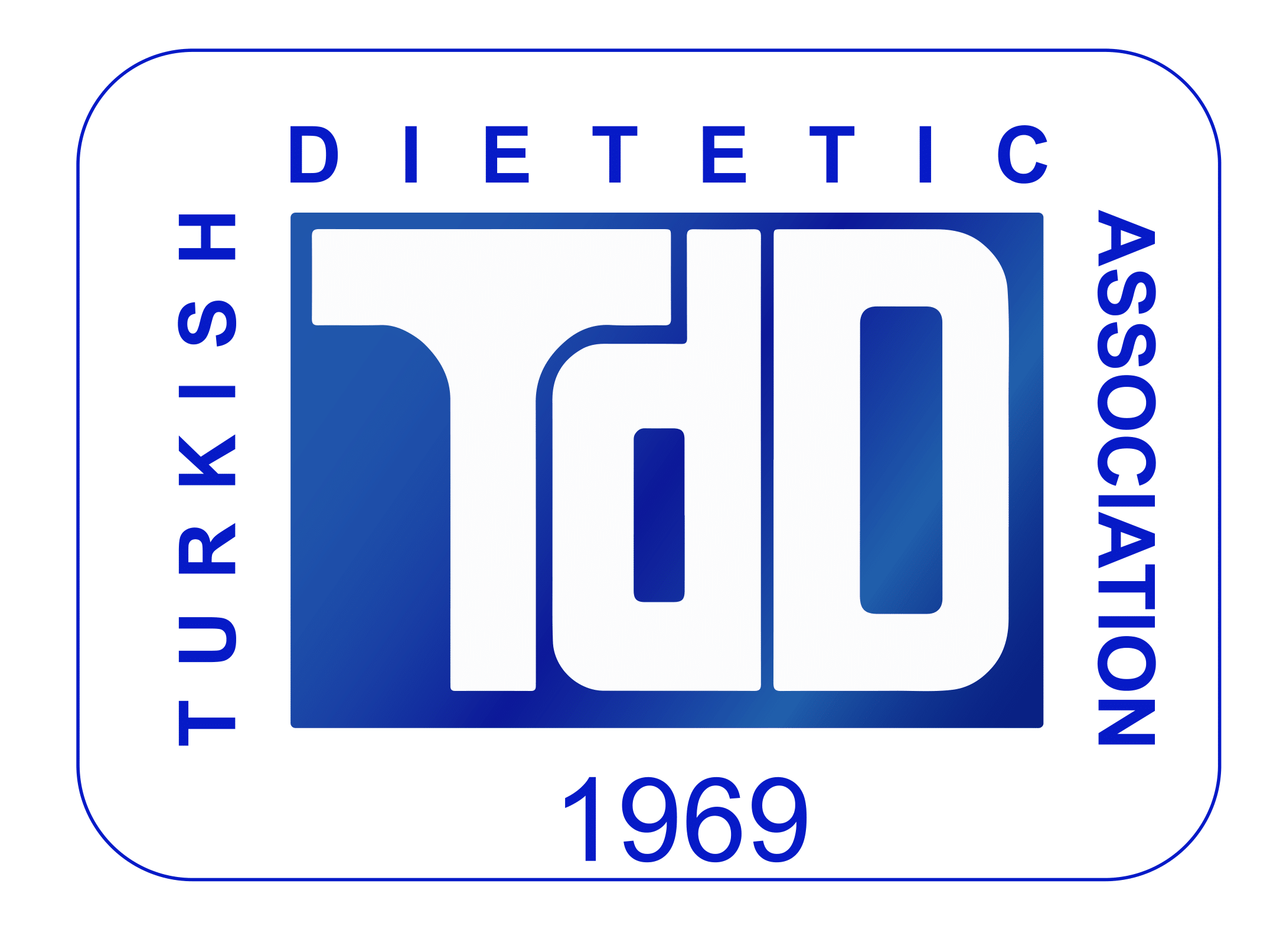The Determination of the Relationship between Food Neophobia and Orthorexia Nervosa Tendencies and Nutritional Status of Individuals Who Engage in Sports
DOI:
https://doi.org/10.33076/2020.BDD.1361Keywords:
Sports, orthorexia nervosa, food neophobiaAbstract
Aim: This study was conducted to determine the relationship between food neophobia and orthorexia nervosa tendencies and nutritional status of individuals who engage in sports.
Subjects and Method: The study was conducted on 107 volunteers (53 males, 54 females) between the ages of 18-64 who have been attending a sports center in Ankara for at least 3 months between December 2019-April 2020. Participants’ personal characteristics, nutritional habits, exercise behaviours were assessed using a questionnaire and their anthropometric measurements were taken. Food Neophobia Scale was used to determine participants’ tendency to avoid or try new foods. Individuals with a scale score of <mean±SD was evaluated as neophilic, mean±SD as neutral and >mean±SD as neophobic. ORTO-11 scale was used to determine healthy eating obsessions of participants and 23 points and below were evaluated as orthorexic tendency. Food Frequency Questionnaire form was used to determine the nutritional status of participants.
Results: No statistically significant differences were found between males and females on the Food Neophobia Scale and ORTO-11 Scale scores (p>0.05). It was observed that the consumption of leafy vegetables/herbs decreased as the level of food neophobia increased (p<0.05). It was determined that the consumption of vegetables was higher, and the consumption of meat and offal products was lower in orthorexic individuals than non-orthorexic individuals (p<0.05). Food neophobia was seemed higher in individuals who exercise 1-2 times a week for weight loss, and orthorexic tendency was seemed higher in individuals who exercise 5 times a week or more for bodybuilding and health protection (p>0.05). It was found that ORTO-11 scores of individuals who engaged in sports for at least a year was lower than who engaged in sports for lesser time (p<0.05).
Conclusion: This study showed that there may be a relationship between food neophobia and orthorexia nervosa and these may affect exercise behaviours. More research is needed to confirm these findings.

